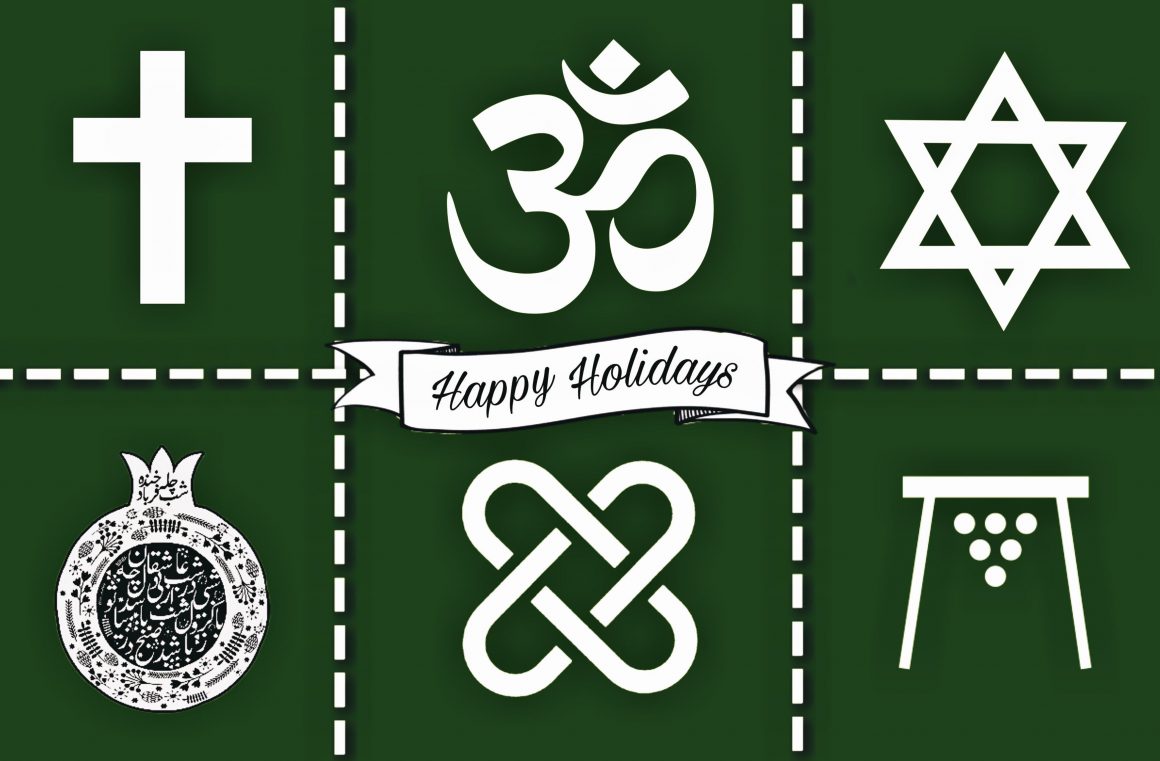
“I don’t care, I’m still saying Merry Christmas”: Here are reasons why you shouldn’t
By Aymen Sherwani, December 21 2022—
Why exactly does the “Happy Holidays” vs. “Merry Christmas” debate still exist? The common phrase “I don’t care, I’m still going to say Merry Christmas” is now more of a reflection of ignorance towards the existence of other concurrent celebrations. If it isn’t ignorance, then it’s the outright admission that Christmas is just more important than everything else. Like babies who struggle with issues of object permanence, people who refuse to say anything other than “Merry Christmas” struggle to acknowledge the existence of people who celebrate holidays other than Christmas because their circles are overtly homogeneous.
It’s a very obvious tell when such people get upset at young baristas or retail workers attempting to be inclusive by saying “Happy Holidays” — arguing that the phrase takes away the nostalgia from the season. Instead, it communicates that their anger is rooted in no longer being the centre of attention. They fail to understand how a more inclusive phrase makes everyone feel the festive cheer. To really cement the idea that Christmas should no longer be the centre of attention, here are several other holidays that people observe this season.
Diwali — November 12:
Around 1.2 million Canadians celebrate Diwali every year — the festival of lights that finds its origins in India and commemorates the victory of forces of light and good over evil and darkness. Diwali is observed by families through the lighting of diyas and, similar to New Year’s Eve, it is observed by many through fireworks. However, unlike New Year’s Eve, Environment Canada issued an air quality statement this year, warning of high levels of air pollution as Diwali approached — something that has never been done in anticipation for when the ball drops.
Hanukkah — December 18 to 22:
In Canada, there are over 391,665 observants of Judaism who celebrate Hanukkah in remembrance of the Maccabean Revolt. The holiday being an important cornerstone of Jewish history and identity — as it tells the story of religious persecution and the struggle for freedom — is overshadowed by the glitz and glamour of mass consumerism that follows Christmas.
Shab-e-Yalda and the Winter Solstice at large — December 20-22:
There are over 213,160 Canadians who mark Shab-e-Yalda, the Persian rendition of the winter solstice. This phenomenon is observed across a multitude of cultures, which includes families getting together to recite poems alongside eating nuts and pomegranates — which symbolizing life and sunrise coming after the longest night of the year. Indigenous peoples celebrate the Winter Solstice as well — as a conscious effort towards decolonization. European settlers brought Christmas to Canada, what Indigenous peoples know to be as “Turtle Island,” and enforced their own customs over traditional ones that have been observed for millennia.
To be clear, there is absolutely nothing wrong with saying “Merry Christmas” — what’s wrong is assuming that the greeting applies to everyone. It’s time to decolonize the festive season and make the holiday cheer something everyone can feel.
This article is a part of our Voices section and does not necessarily reflect the views of the Gauntlet editorial board.
